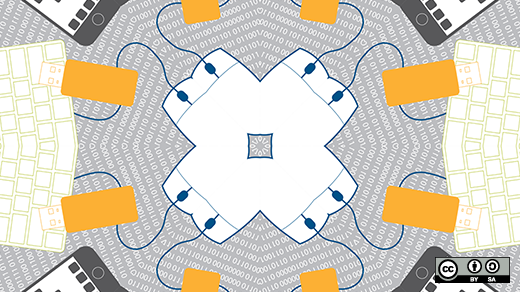As I was searching for open source projects that help learners with disabilities, such as blindness or dyslexia, I came across Bookshare. That led me to Bookshare's parent company, Benetech, a technology nonprofit based in Palo Alto, CA which focuses on empowering communities in need.
Read more about Benetech in our interview with CEO Jim Fruchterman: Open source product development most effective when social.
I reached out and spoke with Anh Bui, Vice President of Benetech Labs, Benetech's new product development arm that explores areas of social need by engaging with communities in the United States and beyond. Her team works with those communities to prototype new software solutions so Benetech can scale what works. Bui has a background in product management and open standards for data.
During my chat with her, Bui pointed out that Bookshare is just one of many Benetech initiatives. She also said that Benetech is an open organization, which for them means that the software and content they create is almost always available under open source or Creative Commons licenses. So, instead of discussing Bookshare at length, our conversation focused on Benetech's work around open data standards, interoperability, and data collaboration within the social sector ecosystem.
"Many mission-aligned organizations still operate within data silos even when sharing data has the potential to reduce duplicative efforts, better leverage limited resources, and amplify successful practices," says Bui. "Establishing open data standards is an integral step in breaking down data silos. Those open standards will provide the foundation for interoperability and in turn, translate to more organizations building together, often more cost effectively. The ultimate goal is to serve more people at the same cost or even less."
Bui's work at Benetech Labs is currently playing out in the social service referral field, which connects people in need to the social services that can help them the most. Despite an abundance of social service referral agencies in the United States, Bui says that, "Someone living in poverty still has difficulty finding resources, such as medical care, food, housing, and other services. If you find an organization to help with one of those issues, they often don't have the right up-to-date information on hand to help you with your other needs. The right information exists, but it is often locked in and fragmented across numerous organizational silos."
Benetech Labs has started to address these interoperability roadblocks. In conjunction with the Open Referral Initiative, Bui and her team are working with social service referral providers in the U.S. to optimize their collection and maintenance of accurate and up-to-date human-services data through an open data infrastructure. Once that infrastructure is in place, Benetech and other organizations can develop tools on top of it to better connect people to services. Bui expects to run pilot programs this year with a focus on specific service areas, such as legal aid services and local and regional government-provided health and human services.
Bui acknowledges that this is a big undertaking and that the developer, social service referral, and philanthropic communities must play an active role. "If you're a developer and you're interested in working on a software for good project, Benetech is a great place to start. If you are a potential partner organization and you're interested in breaking down existing social service data silos, know that we are always looking for partners. If you're a funder, know that this work has the potential to impact the lives of millions," says Bui.







Comments are closed.